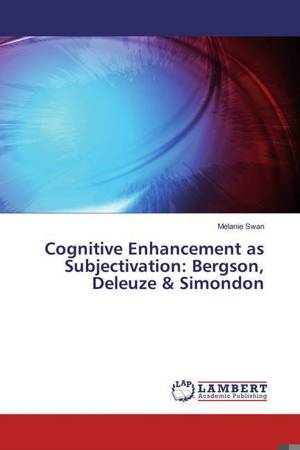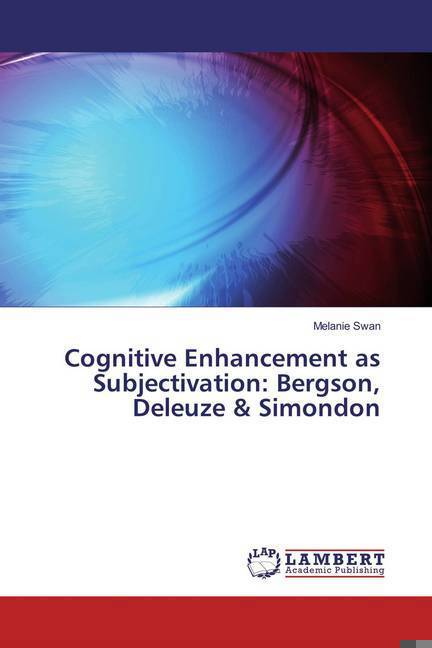
- Afhalen na 1 uur in een winkel met voorraad
- Gratis thuislevering in België vanaf € 30
- Ruim aanbod met 7 miljoen producten
- Afhalen na 1 uur in een winkel met voorraad
- Gratis thuislevering in België vanaf € 30
- Ruim aanbod met 7 miljoen producten
Zoeken
Cognitive Enhancement as Subjectivation: Bergson, Deleuze & Simondon
Melanie Swan
Paperback | Engels
€ 39,45
+ 78 punten
Omschrijving
This book argues that cognitive enhancement should be conceived, via Bergson, Deleuze, and Simondon, as an ontological issue of greater subjectivation possibilities, as opposed to primarily as a bioethical concern. Part I frames the philosophical problematic of subjectivation per Bergson's duration and free will, Deleuze's movement-image and time-image, and Simondon's individual individuation. Then Simondon's capacity-driven subjectivation and collective individuation is invoked to overcome human-centric subjectivation. Further, a non-emotional collective structuration is proposed to allow human and non-human entities to participate together in collaborative group individuations. Part II then considers what is meant by 'greater subjectivation possibilities,' and articulates this through the qualitative: Bergson's qualitative as duration, and Deleuze's qualitative as the artsign, pure thought, and immanence. The qualitative is connected to Deleuze's immanence subjectivation and transcendental subject. Ideas from Bergson, Deleuze, and Simondon are then formulated together into a pure image of subjectivation that can more fully enact a moment of post-subject subjectivation.
Specificaties
Betrokkenen
- Auteur(s):
- Uitgeverij:
Inhoud
- Aantal bladzijden:
- 84
- Taal:
- Engels
Eigenschappen
- Productcode (EAN):
- 9783659835582
- Uitvoering:
- Paperback
- Afmetingen:
- 150 mm x 220 mm
- Gewicht:
- 128 g

Alleen bij Standaard Boekhandel
+ 78 punten op je klantenkaart van Standaard Boekhandel
Beoordelingen
We publiceren alleen reviews die voldoen aan de voorwaarden voor reviews. Bekijk onze voorwaarden voor reviews.











